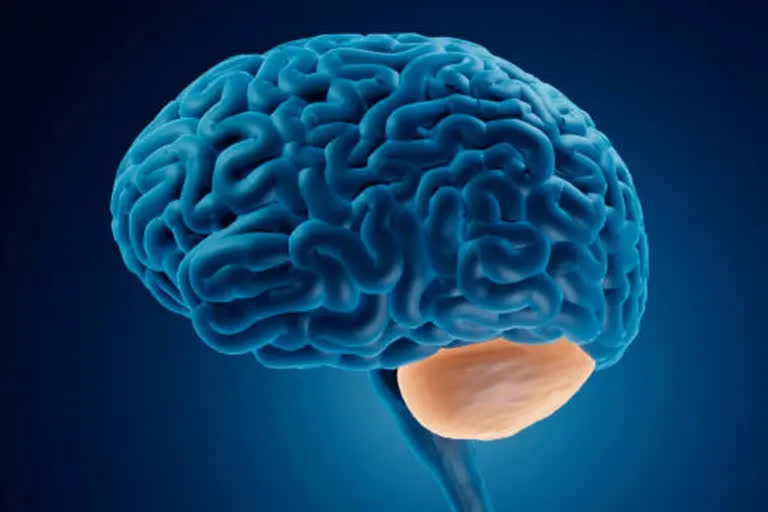Hyderabad: The condition of brain fog attracted a lot of people's attention during Covid. People usually dismiss the problem of forgetfulness or the problem of not being able to focus on any work as signs of a careless attitude, or they incorrectly address it as Amnesia.
Sometimes due to certain physical or mental conditions, physical diseases, weaknesses or due to circumstances, people may temporarily forget things, lack concentration and other related symptoms. Such symptoms are also considered brain fogging. The condition of brain fogging as a side effect has been diagnosed very commonly in people suffering from severe forms of Covid infections. But, Covid is only one of the many reasons for the development of Brain Fog.
“Brain fog” is technically not a medical disease but a condition in which the brain's ability to think and function decreases due to various reasons. Apart from this, there is cognitive dysfunction, memory issues, concentration problems, difficulty in thinking clearly, and problems in completing tasks or completing them on time, etc. are also noticed in Brain Fog.
According to doctors, in the case of Covid-19, brain fog was seen more as a side effect because the body's immune system was affected due to the virus, causing neurological changes in the brain. Many researchers also reported cases of neurotransmitter functionality being affected.
Dr Ashish Singh, a psychiatrist from Delhi, says that even though people came to know more about the 'brain fog' condition during Covid 19, it is a common problem, for which many other reasons can also be responsible. Even during present times, it is diagnosed in people living an unbalanced lifestyle.
He explains that many factors can be responsible for brain fogging, such as excessive stress from the office, home stress, multi-tasking, studies, worries about the future, etc. Apart from these, the brain's ability to function also gets affected due to medical therapy or treatment, which affects the body's immune system.
He explains that in medical terms 'Brain Fog' is a condition that affects people's ability to think, remember and concentrate. Although it is not a serious disease, many people think that this condition can affect a person's mental health, which is a myth. This condition affects a person's normal day-to-day routine. When a person's ability to work or remember is affected, they may develop feelings such as depression, anxiety or sometimes low self-esteem.
He explains that brain fogging is generally considered to be one of the early symptoms of diseases such as Dementia or Alzheimer's, in which a person loses control over their memory. Apart from these, it is also considered a symptom of anxiety disorder, depression and other mental health problems.
Also read:Sitting all day is terrible for your health now, a new study finds a relatively easy way to counteract it
The condition of brain fog can sometimes occur due to some physical diseases or problems like Meningitis, stroke, low blood sugar or diabetes, Encephalitis, migraine and lack of oxygen in the body etc. Apart from these, sometimes this problem can also occur due to the effects of therapy or medicines given during the treatment of some serious diseases. Some other reasons for brain fog are as follow:
- Depression or extreme stress.
- Multi-tasking.
- Hormonal Imbalance.
- Lack of adequate and good quality sleep.
- Deficiency of Vitamin B12 and other nutrients in the body.
- Anaemia.
- Spending too much time on mobile, computer and TV.
He further explains that many times this problem can be noticed in women even during pregnancy or menopause when there are more hormonal changes in their body.
Dr Ashish says that many other symptoms except forgetfulness and lack of attention are visible in sufferers of this condition. The symptoms are different in different people. Depending on the physical or mental state, one or more symptoms with different intensities may appear in people. Some of these are as follows:
- Loss of memory, forgetting names of people or things.
- Trouble concentrating on work.
- Having trouble thinking clearly.
- Excessive sleepiness and feeling too tired to do anything.
- Poor performance at school or work.
- Feeling low and depressed.
- A decreased pace of work.
- Constant confusion.
Dr Ashish explains that though it is common to see this problem in elderly people due to ageing, if people start developing this condition at a young age or after any illness, then the intensity of its symptoms increases. So they should not be ignored, rather a doctor should be consulted immediately.
Dr Ashish explains that if a person is experiencing brain fog with acute symptoms, then first of all it is necessary to understand and accept their condition. Along with this, improving your lifestyle and diet, and disciplining your behaviour such as listing your day-to-day tasks can also be of great benefit. This will reduce the possibility of any work being left out due to forgetfulness. Apart from these, adopting various habits can reduce the onset of brain fog. Some of these are as follows:
- Scheduled rest intervals throughout the day.
- Increasing consumption of nutritious food.
- Exercising regularly, especially yoga and meditation.
- Performing one task at a time.
- Taking some time out in the day to do tasks that make you calm and happy.
- Do not hesitate to take help and advice from others in any work.
- Spending time with friends and family.
